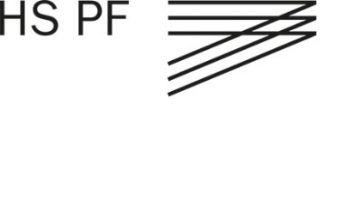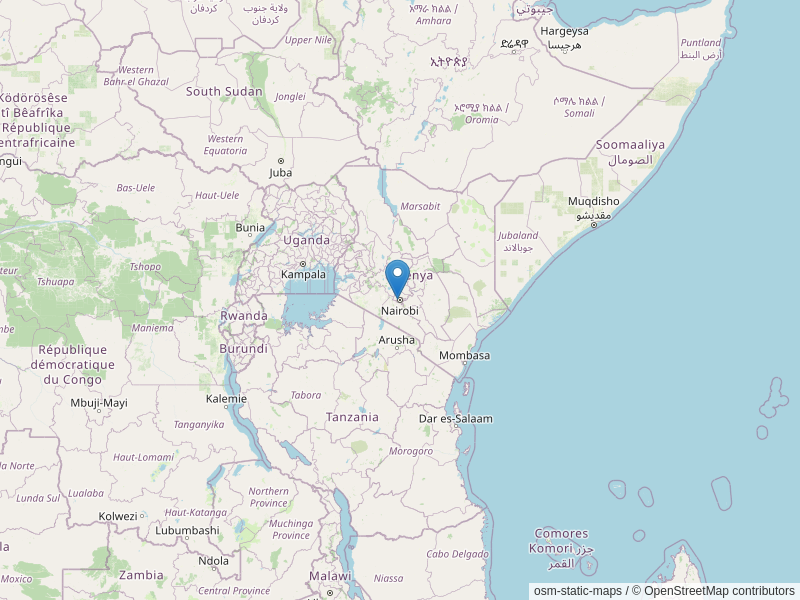Questions for Nathan Taremwa: DAAD project funding for university collaborations
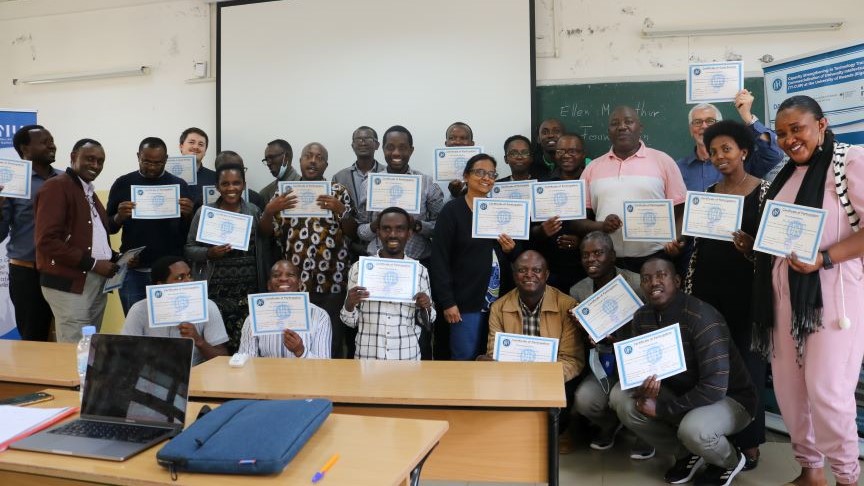
Briefly introduce yourself and the DAAD projects you are involved in Rwanda.
My name is Nathan Kanuma Taremwa. I am a Lecturer at the University of Rwanda (UR) in the College of Agriculture, Animal Sciences and Veterinary Medicine (CAVM). Besides, I am the Principal Investigator for two projects funded by DAAD from 2021 to 2024.
The two projects are
i) Capacity Strengthening in Technology Transfer and Commercialization of University Intellectual Property” (TT-CUIP) from 2021 to 2024 and
ii) Advancing Sustainable Economic Development in Rwanda through Circular Agro-economy (Rwanda CAE) project 2021 to 2024.
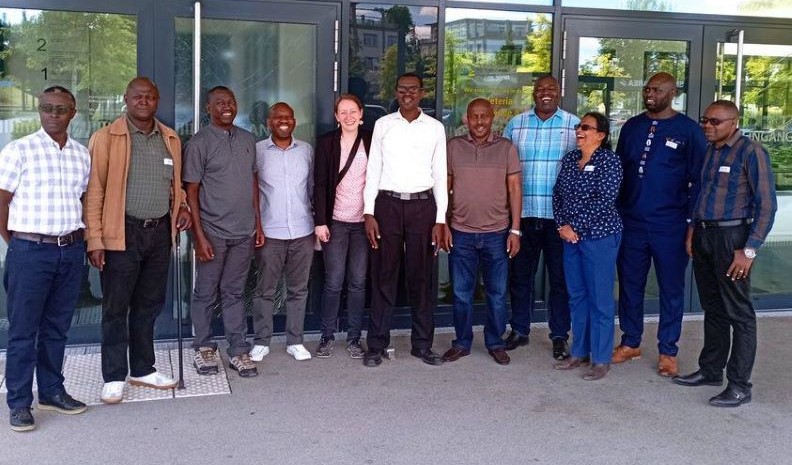
© NK
How did you get in contact with the DAAD?
I had a contact from the Germany Institution, Prof. Dr. Thomas Bayer, who is a senior researcher and academician in Germany from Neu Ulm University of Applied Sciences (HNU). He is the one with whom we are doing the two projects.
You have participated in two DAAD funded projects. How did you come to participate in these projects?
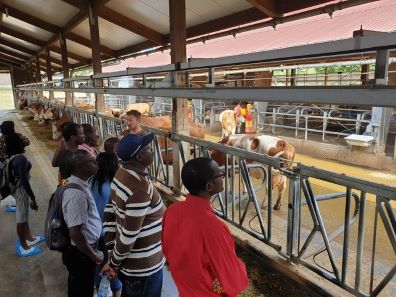
© NK
We jointly prepared the two project proposals with Kenyatta University (KU) and Neu Ulm University of Applied Sciences (HNU). The Rwandan team nominated me as the team leader (principal investigator) for the TT-CUIP project.
Also, when the DAAD call for individuals/institutions to submit proposals came out, and Rwanda was eligible, I contacted Prof. Dr. Thomas Bayer with a new request to team up and submit a new proposal on the University-Industry partnership. That is how the current project on Rwanda CAE was initiated with my full participation as team leader on the Rwandan side.
Please tell us more about the project “Capacity Strengthening in Technology Transfer and Commercialization of University Intellectual Property” (TT-CUIP) from 2021 to 2024. What are the goals of the program? When did it start? What does it involve? How have you measured or how do you plan to measure the success of the project?
The TT-CUIP project aims to strengthen the technology transfer capacity of faculty and researchers at the University of Rwanda.
It also focuses on commercializing the university’s intellectual property to broader stakeholder networks and partnerships with society.
We started project implementation in 2021. The project primarily involves training for senior, mid-career, and junior researchers and academics working in the University of Rwanda’s technology transfer units.
We have conducted training on many topics including patent acquisition, the relevance and benefits of technology transfer, success factors for TT and TTO, key processes and modern trends of TT, relationship management with industry, and the role of leadership training and professional development.
We plan to measure success or impact by looking at outputs (number of employees trained) who can improve their daily work with the acquired skills and competencies in technology transfer and innovation.
We will also consider the whole chain, i.e. -> inputs – outputs – outcomes and the impact of the technology and the changed processes.
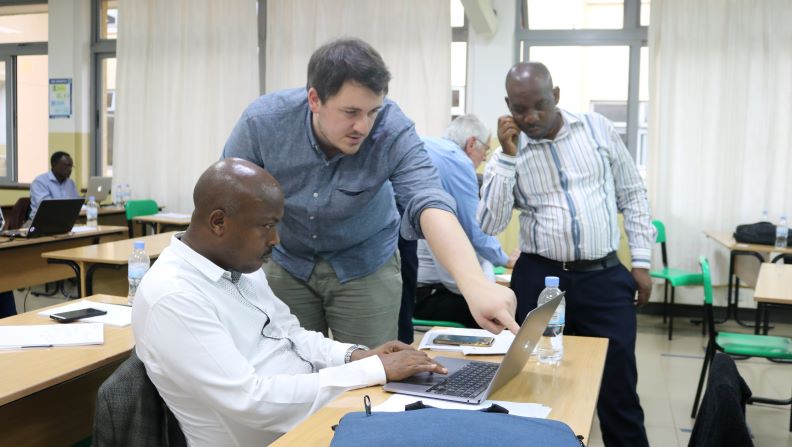
Ron and Nathan working
Please tell us more about the Advancing Sustainable Economic Development in Rwanda through Circular Agro-economy (Rwanda CAE) project. What are the objectives of the program? Who is involved in this project? How will the success of the project be measured?
The project aims at sparking the development of circular business models in Rwanda’s agro-economic sector.
In the Rwanda CAE project, we have Universities and Industry partners collaborating. Mainly we have HNU, UR (Universities) and En- Crops GmbH, Sharkbite Innovation GmbH, and Urwibutso Enterprise Ltd (Industry partners).
We intend to start a new Interdisciplinary Master of Science Degree in Circular Agro-Economy at the University of Rwanda by 2023.
The University of Rwanda, in partnership with Neu Ulm University of Applied Sciences (HNU), has approved the programme. The curriculum has been developed in consultation with circular economy experts to ensure the programme is more grounded and richer with circularity.
We will also have e-learning certificate courses as part of the programme. Besides, we have had a series of capacity-building training intended to build capacities at the University of Rwanda, especially those aligned with the circular economy.
What challenges have you faced in implementing these projects?
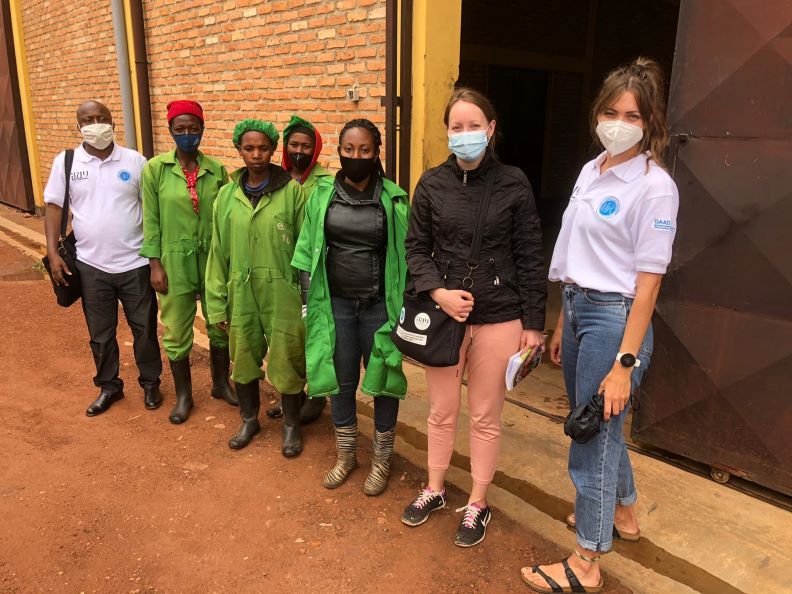
© NK
We currently have no issues with project implementation with the two projects. We are optimistic that we will achieve the intended objectives.
The only concern right now is to get the timely approval and accreditation for the new master’s degree in circular agro-economy, which has to come from the Higher Education Council (HEC), Ministry of Education (MINEDUC Rwanda), and this might take a little longer than expected.
What results do you expect at the end of the implementation of these projects?
With the TT-CUIP project, we expect to see better performance in the technology transfer and innovation offices at the University of Rwanda through enhanced competencies for research and innovation officers.
We also aim to produce training trainers in Patent Drafting as an essential skill at the University of Rwanda.
Finally, we expect to see developments in the commercialization of University IP in Rwanda.
With the Rwanda CAE project, we hope to have the programme up and running soon, with a target to at least graduate the first cohort by 2024.
We also expect to have built capacity, especially for the trainers in the new interdisciplinary master of science programme in circular agro-economy, for the programme’s sustainability as aligned to the technical aspects of the programme.
We expect to train/graduate at least 25 M Sc. students by 2024. We also have four research packages with the target of publishing research papers and/or case study reports in international peer-reviewed journals.
Do you already have graduates from the projects? What are they now engaged in related to the project?
Yes, with the TT-CUIP, we have trained ten research officers in patent drafting at different levels and are continuously engaged through the TT-CUIP project.
As for the Rwanda CAE project, we do not have any students. We are expected to admit students at the start of 2023, subject to approval and accreditation from HEC Rwanda.
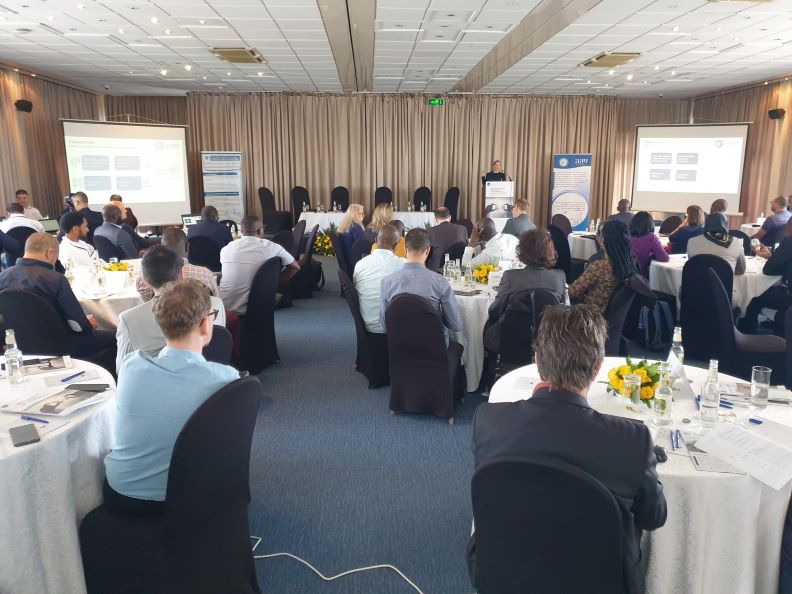
© NK
Thank you very much for your time; we wish you good luck with the projects!


